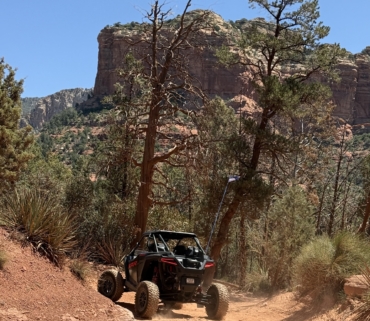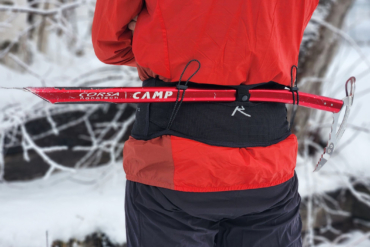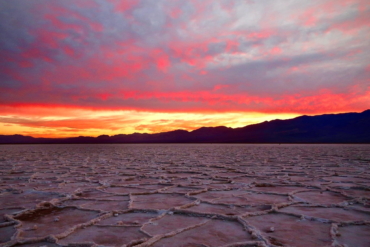This post is part of a series of live race updates from southern Chile, the location for the 2011 Wenger Patagonian Expedition Race.
By T.C. WORLEY
As Team Adidas disappeared into the forest, my companions and I hurried to set our tent up and escape the cold wind and rain. Two 40-degree, waist-high water-crossings, had left us soaked and shaking. A satellite call at around 5:30pm confirmed that a helicopter would come within the hour and that we needed to make our way to a sandbar at the end of a fjord we were overlooking. It finally did come, but it only dropped a bag of food and left us with a promise to return if weather allowed. For a long time after, apparently the weather did not.
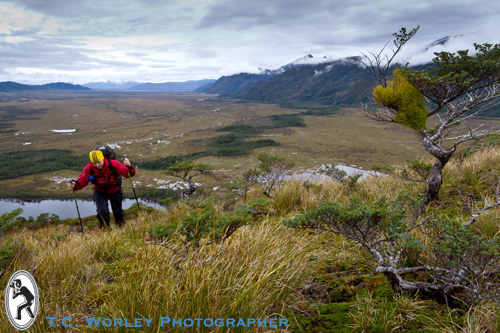
The night was miserable. We had our floorless tent, pads and sleeping bags, but all were wet from the accumulation of several days of rain and bushwhacking. Sam’s down bag was completely wet and useless for trapping body heat. He shook and moaned for hours, only able to grab brief moments of sleep. While my bag was not entirely dry either, I was at least moderately warm. Some time in the middle of the night, I told him to try and squeeze into my sleeping bag with me. It did the trick. Neither of us was comfortable or able to sleep much, but we were warm, and that was enough.
Early in the morning several teams, including our own Team GearJunkie.com, passed by our beach home. “Wake the f%$# up!” shouted one of them, jokingly, as they recognized our tent. Tales of swimming in fjords and near-hypothermic spells spilled from them; they were clearly excited to see us. But it was a race and they were gone again in 45 seconds, wading another waist-high river before moving out of sight.

It turns out we were in one of the only pinch points on the course for about 100 kilometers. Every team that passed through the area pretty much had to walk within a few feet of our tent — the perfect place for three media members to squat. We used the vantage point to send messages to the race HQ, letting them know the progress and safety of each passing team.
When the helicopter finally did come back the following day, it was the Japanese film team, NHK, stopping not to pick us up but to rendezvous with their cameraman who had been dropped to run with Team East Wind from Japan. By some stroke of luck, Matthew, the helicopter pilot, was Canadian and he therefore spoke English (unlike other members of the Japanese film crew). He took a liking to us, and perhaps some sympathy, too, helping arrange a scenario to get us off the beach and somewhere dry and warm again. “Can you be ready in five minutes?” he asked us. Our tent and gear was packed and ready in record time, and our faces wore smiles a mile wide.
The helicopter blades whistling and swishing, Matthew throttled the vibrating aircraft up and we rose, slowly, gently from the beach the way a new dad lifts his baby for the first time. When we reached the appropriate altitude he banked the machine hard, and my stomach rose to my throat. I stole a look at Paul, strapped in beside me, and his grin was as big as mine. Our first ride in a helicopter was climbing above the most beautiful wilderness we may ever see, on a trip that few people could replicate.
After a short ride and a brief layover at cold, rainy Checkpoint No. 10, we climbed aboard the machine once again to be taken out of the mountains. High above mountains and fjords, the helicopter bucked and weaved, rarely moving in a straight line. As we flew I pondered how small the place seemed from the air. Then it occurred to me — what had taken Team Adidas, the fastest team in the race, 17 hours on foot, we covered in only eight minutes by helicopter! Foot travel in the wilds of Patagonia is, without a doubt, the best way to experience the place, but also the most risky and painfully slow.
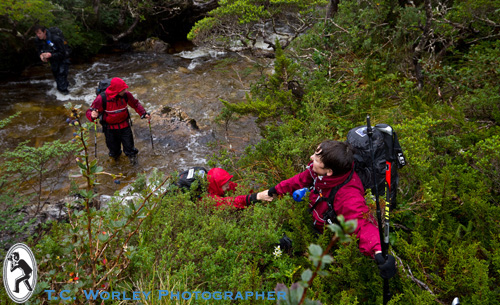
Once landed, we transferred to a bouncy truck ride that eventually brought us to Puerto Natales, Chile, a sleepy little tourist town on the outskirts of Torres Del Paine Park. To be in civilization once again was surreal. In the wilds, my life had become about survival — pared down to basic needs like warmth, food, water. In Puerto Natales, someone ordered pizza, offered me a shower and a bathrobe. Later, I’d sip Americano coffees and beers, not the cold, crystal waters of a Patagonian stream. The contrast of my last few days was blowing my mind.
But while I stood, pizza in hand and marveling at my life, the teams were still slogging along in the fierce conditions of the race. My experience was but a glimpse at what these people go through. Never in my life have I witnessed such real human suffering for the sake of competition and glory. Or maybe it’s just a deeper self-realization of the potential we all have to do more, no matter the situation.
—T.C. Worley will be reporting live from Patagonia through the end of February. Follow Team GearJunkie.com and the Wenger Patagonian Expedition Race at The GJ WPER Channel.


